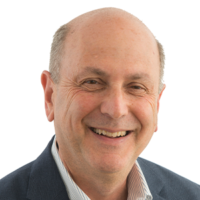I’ve just returned from the Stephen H. Schneider Symposium in Boulder, Colorado, a three-day, live-webcast conference that commemorated the remarkable life and legacy of the Stanford-based climate scientist who died at the age of 65 in July 2010. All of the (rich) talks and discussions from the conference are posted here.
Reflected across the formal talks and hallway conversations were Steve’s tireless commitment to rigorous research, interdisciplinary collaboration and mentoring of young scientists, and his gift for communicating complex science to the public and policy makers with a mix of passion, insight, metaphor, and good humor.
I first met Steve in November 2000, when he came to the 6th Conference of the Parties to the Climate Convention (COP-6) in The Hague, Netherlands and participated in a series of UCS-organized webcasts with Bill Nye the Science Guy that profiled the roles of science and politics in the tense and murky negotiations over the rules of the Kyoto Protocol.
This short clip of Steve and Bill Nye at The Hague provides a great example of Steve’s communication skills:
Steve’s collaborations with UCS also included ground-breaking research into the impacts on climate change on California. This work, and follow-on outreach and discussions with state policymakers in which Steve enthusiastically participated played a pivotal role in informing and motivating California leadership in climate policy.
Careful to distinguish when he was communicating scientific facts, and when he was expressing personal values, Steve took the role of scientist-advocate seriously. Here’s a quote I often cite in talks, taken from a more extensive commentary on his website:
“[R]esponsible advocacy and popularization are not, in my view, oxymoronic — but it takes discipline to minimize trouble. Scientists will never succeed in pleasing everyone, especially since many continue to think scientists should stay out of the public arena. But if we do avoid the public arena entirely, then we merely abdicate…to someone else — someone who is probably less knowledgeable or responsible. In my view, staying out of the fray is not taking the “high ground”; it is just passing the buck.”
I share Steve Schneider’s view on scientist-advocacy, and have written about the role of scientists as effective advocates elsewhere. This is, I think, at the heart of why UCS exists.
What do you think?
